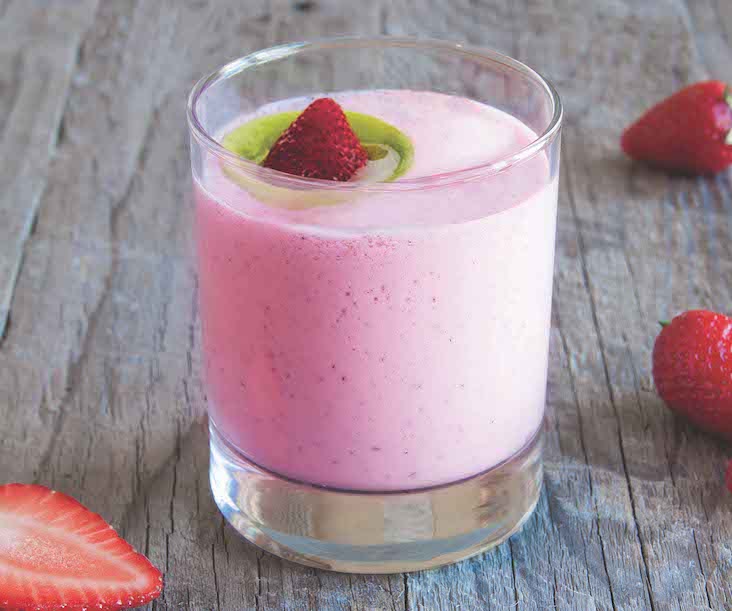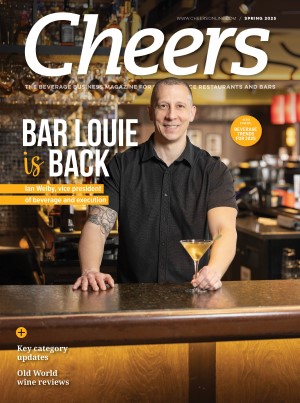By Margaret Shakespeare
Inventive operators across the country are cleverly using private label wines as a marketing and branding tool to create a sense of regionality and offer more value-added options for customers. Some private label bottlings also can fulfill the vision that many operators have of wine as a showcase for serious, hands-on staff education and limited-quantity offerings. For some, it also is added revenue that may come with less of a markup, and for many restaurateurs that savings can be passed along.
In 1992, Richard Gonzmart, president of Florida’s seven-location, Tampa-based Columbia Restaurant, created a wine label named after his father, sourced from Rioja in Spain. “And then I decided to do one for my mom, as well,” he says of Adelita, the unoaked Chardonnay the restaurant menus. The two wines sell at $8.95 a glass and $36 a bottle.
As the wine program and list grew—to 1,000 labels in a 50,000-bottle cellar, with up to 32 offered by the glass—Gonzmart added an “accessible” private-label called Don Casimiro, which includes a chardonnay, white zinfandel, merlot and cabernet sauvignon, each selling for $6.50 a glass and $26 a bottle. The gentle pricing pushes sales, he says. “Our private labels account for 50 percent of bottle sales and 68 percent of by-the-glass sales.” Servers will suggest pairing these wines with daily menu specials because of their comfort level with the brands. They also use the private labels as an entry point for telling guests about the restaurant’s history as a multigenerational family business entwined with Spanish and American culture.
Restaurants often seek out wineries that represent a similar aesthetic, and they often find them, not surprisingly, close to home. The resulting private label bottles can help raise a restaurant’s profile in terms of its focus on local offerings. “Our inventory used to be about two-thirds California, but in the past few years it’s moved toward Washington,” says Chad Mackay, president and CEO of Mackay Restaurants, headquartered in Seattle, with seven locations in the Pacific Northwest, noting the rise in Washington wine quantity and quality.
Mackay wanted to add appeal for the customer seeking the Northwest culinary experience. “We started talking about finding surplus premium grapes to make our own blend,” and they struck a deal with local winery Alexandria Nicole Cellars, he says. He then put together his own team of wine captains and sommeliers who tasted, blended and discussed the wine to come up with a final product. The fruit for Duck Press Red, a merlot and three other red varietals, and Epiphany, a viognier, all comes from Destiny Ridge Vineyard in the Horse Heaven Hills AVA. Both bear the Mackay label and are poured in the company’s five most upscale properties, at $42 to $52 per bottle and $12 to $14 by the glass. It is a way for Mackay to give those who visit the restaurant “value price points to give our guests higher quality [than usual] for $50. That helps build customer relationships.” He adds that another incentive is the process. “It also trains the staff—making the wine yourself is really tough—and they are able to tell a little [tableside] story.”
With the red rich with dark berry and mocha flavors a sure match for the traditional menu at Mackay’s four El Gaucho steakhouses and the white complementing a variety seafood that represents about a third of their food sales, the 360 private label cases already add up to five percent of the restaurant group’s wine sales, and the wine also is available at the winery. Other bottles on their 400-label list are priced from $35 to $6,000.
Promoting the Home Team
A little lower on the West Coast, Matthew Stuhl, area director of food and beverage operations for Joie de Vivre Hospitality, headquartered in San Francisco and with 35 boutique hotels throughout California, created a slow food ethic for the Americano restaurant in San Francisco’s 200-room Hotel Vitale. “We wanted to use the private label concept to [produce a wine that would] blend with [our] Italian cuisine. We looked for up-and-coming winemakers. In 2004, we started with a syrah from Las Madres Vineyards in Carneros, which is organic, and then wanted to move around to other vineyards but with the same varietal to get the scope of what the syrah grape can do within California,” he says. Next they selected Thompson Vineyard and White Hawk Vineyards, both in Santa Barbara. “Once the grapes were picked, we got involved mostly in the blending process—and the bottling and labeling.”
The Americano wines, with the proprietary name Dreamer, proved to be a stellar match with the restaurant’s Northern Italian cooking. “All the animal notes and robust flavors go with meaty, gamey dishes such as oxtail or short ribs, which are always on the menu. And the [Santa Barbara] vineyards bring out baking spices in the fall pastas, pumpkins and squashes,” he says. Dreamer, priced at $72, “was meant to be a marketing tool, not a revenue tool.” As such, it can be sent as a gift to top clients. For customers, Dreamer can be a bargain, since some other syrahs from similiar Santa Barbara vineyards can retail for $100 or more. The Las Madres 2004 already has sold out.
At Fossett’s, the fine dining restaurant at Keswick Hall, a luxury 48-room estate property in Charlottesville, Va., diners are lavished with the region’s finest agricultural products, including one of the largest Virginia wine lists anywhere. But that was not enough for Richard Hewitt, sommelier and wine director, who says, “We always wanted to present our guests with our own private label wines.” So he asked for staff volunteers, settled on chardonnay grapes from Carter’s Mountain Winery and petit verdot grown at Pollak Vineyard, and they made the stuff themselves. ”We chose to be totally hands-on.” Only the 2008 white has been released, but half of it—at $9 a glass or $36 a bottle—is gone.
Private label wines can even be created as a fundraiser for the right cause. When in early 2009 the Virginia Symphony was about to go under, Bill Rice, general manager of the Norfolk-based Byrd & Baldwin Bros. Steakhouse, decided a private label might save the day. He found Jon and Mills Wehner of Chatham Vineyards on the Eastern Shore, and they were happy to dedicate part of their Church Creek Oak Blend non-vintage Chardonnay and 2006 Merlot to the cause. They even advanced the cost of the new labels, which the symphony designed. The release kicked off with a music series at the Chyrsler Museum. Now Rice displays the wine, priced at $10 a glass, $38 a bottle, in Byrd & Baldwin and four other nearby restaurants. Servers, menu flyers and e-mailings promote it. He expects to be able to donate about $25,000 profit to the symphony. In turn, the wine has generated a flurry of priceless positive local press for the restaurant.
As more operators explore the world of private label wines, many are just beginning to understand how these bottlings can offer a trusted brand at a competive price and foster in-depth staff education.




